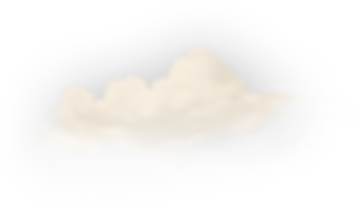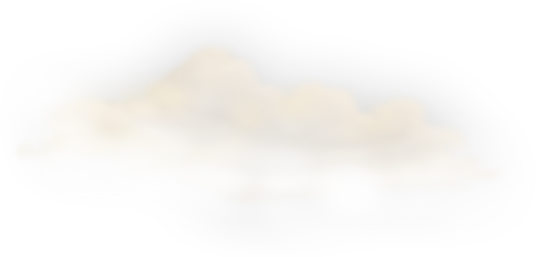James, William B.
Place of Birth: Pembrokeshire
Date of enlistment: 5 February 1872
Age given at enlistment: 23
Rank: Sergeant
Company: E
Location on 25 June 1876: Wiith Custer's column
The Lone Welshman (Yr Unig Gymro)
- Sergeant William Batine James Immortalised in Song
- Delwyn Sion, the Welsh language folk singer, has released an entire CD of songs about William B. James!
- It’s called: ‘Chwilio Am America’ (which means ‘Looking For America’) and can be found online via Google.
- All the songs are in Welsh, naturally (unfortunately!)… Does this make the sergeant in Company E the only enlisted man in Custer’s Seventh Cavalry who became the subject of song?
- My thanks go to Mike Lewis, Cambrian News, for bringing this to my attention.

Hanes WILLIAM BATINE JAMES yw cefndir y casgliad yma o ganeuon. Mab fferm "Pen Cnwc" Dinas, Sir Benfro oedd William, a benderfynodd fel llu o'i gyd Gymry yn y ddeunawfed ganrif i adael caledi cefn gwlad a mynd i chwilio am fywyd gwell. Aeth 'na rai i gymoedd diwydiannol y De, aeth William i'r cyfeiriad arall, gan ddilyn y palmant aur i'r America. [English translation below]
- The English Translation
- The background to this collection of songs is the history of WILLIAM BATINE JAMES. From the “Pencnwc” farm in Dinas, Pembrokeshire, William decided, like many Welshmen in the 18th Century,* to leave the hardship of rural life behind in search of better opportunities. Some went to the industrial valleys of South Wales, but William went in a different direction, following the golden path to America.
- Note (*): The CD notes are incorrect when they refer to the 18th instead of the 19th century.
- My thanks to Aaron Evans, Bangor, North Wales for this translation.
- William Batine James, the sixth of nine children to John James, a farmer, and his wife Eleanor Batine, was born 3 March 1849 at Pencnwc, in the parish of Dinas, which is situated roughly halfway between the port of Fishguard and the medieval town of Newport, in the county of Pembrokeshire, southwest Wales.
- At the time of their marriage at Haverfordwest Register Office on 2 March 1839, John James was living in Caerlem and Eleanor Batine in Llanwnwr, both farms being situated close to each other near Strumble Head in the parish of Llanwnda located some six miles northwest of Fishguard. The James family had lived in Pembrokeshire for centuries and proudly claimed direct descent from the ancient earls of Ormonde.

A much-extended and modernised Pencnwc Farm, Dinas Cross, Pembrokeshire (2012). Author's photograph.
- John and Eleanor James set up home at Pencnwc where they farmed 80 acres set amid beautiful countryside with splendid views across a verdant pastoral landscape to the rugged coastline of Newport Bay. At the age of fourteen, having received a good elementary education at the local school and living in such a near idyllic place, William’s future would surely have seemed bright enough but the sudden death of his father in 1863, at the relatively young age of 51, changed all that.

Headstone to John James in the Ramah Cemetery, Brynhenllan, Dinas, Pembrokeshire. "O spare me that I may recover strength before I go hence and be no more," Psalm xxxix 15. Photograph courtesy of Judith Millican.
- Under the terms of John James’ will, the various leases and other property that he owned were to be sold and the proceeds invested in “Parliamentary stocks or public bonds of Great Britain or at interest upon Government or real securities in England and Wales but not Ireland” to produce an income for Eleanor, who still had several children to support.
- Pencnwc was thus systematically broken up and within a few years the family had vacated the farm for an unknown destination. During this period tragedy was to become no stranger to young William for at least one of his brothers and two sisters died; all three siblings buried in the same gravesite as their father in Ramah Chapel Cemetery, Bryn Henllan, near Dinas Cross, where headstones mark the spot.

Headstone to Ellen, Ann and James James, siblings of William B. James, Ramah Cemetery Brynhenllan, Dinas, Pembrokeshire. Photograph courtesy of Judith Millican.
Enlists in the United States Army
- Welsh would almost certainly have been William James’s first language – “Yr unig Cymro” means “the lone Welshman” – though we know he was fluent in both spoken and written English.
- He left Pencnwc and worked as a commercial traveller in Llanelli and possibly London, before sailing to an unknown destination in North America in March 1871. A letter home from Toronto, Canada, dated 9 April 1871, to his younger brother John Clement James (see below) tells of his safe arrival. It is not known how long William James remained in Toronto and he may well have crossed the border into the United States later that same year eventually making his way to Chicago, Illinois.
- For personal reasons William James never revealed to his family that he had enlisted in the United States Army. Perhaps he didn’t want to cause his mother any unnecessary concern? Brief as it is this letter is one of the most informative of the five discovered by Mike Lewis (County Echo and St Davids City Chronicle, Fishguard) among the papers of his younger brother, John Clement James, in the Pembrokeshire Archives. If, indeed, William James kept his word and did write “a long letter” to his brother it almost certainly hasn’t survived. See Mike Lewis’ excellent newspaper article, which is reproduced at the end of the biography below.

The first letter sent home from William James to his younger brother, John Clement James, in Wales dated 9 April 1871.

A letter from Canada to UK in 1871 cost 3 cents.

The postbox on the main Fishguard to Newport road at the end of the lane leading to Pencnwc Farm. Were any letters from home to William James posted here? (Author's photograph - 2012)

Declaration of Recruit signed by William B James - 5 February 1872.

Letter written by William James sent from Fort Lincoln 11 April 1874 to brother, John Clement James, in Wales.
- Between the end of the American Civil War and the Depression of 1873, Chicago probably profited more from its railroads than any other American city. It must be supposed, however, that the 22-year-old William James did not enjoy a share of this bonanza as on 5 February 1872 he presented himself at the U.S. Army recruiting office in that city, where he was interviewed by Capt. Samuel B. M. Young, 8th U.S. Cavalry.
- After solemnly swearing an oath of allegiance to his adopted country, he signed on for a term of five years and assigned to George Armstrong Custer’s celebrated Seventh Cavalry as a member of Company E, known as the “Grey Horse Troop.” His enlistment papers describe him as having hazel eyes, light hair and light complexion, being 5’9” tall and previously employed as a coachman.
- He was not the first in his family to choose a military career, for one of his great-uncles was a major general in the Indian Army; another, Francis Batine, an ensign in the 1st Regiment of Foot. In retirement, Francis spent some time at Llanwnwr and no doubt regaled his kinsfolk with stirring tales of his adventures fighting for King and Country.
- From Chicago he was sent to Unionville, South Carolina, where he joined his new comrades on 26 February, who were employed on Reconstruction duty in the South. William James was on detached duty as a hospital attendant during September and October 1872 and with Company E on the Yellowstone Campaign (1873) and the Black Hills Expedition (1874).
- Final Statement of Sergeant William B. James signed by 1st Lieut. Charles C. De Rudio, Commanding Company, at Fort Abraham Lincoln, 21 November 1876.
- DUE SOLDIER
- For retained pay under act of May 15, 1872 … $50.00
- For clothing not drawn in kind … $29.33
- For deposits with the USA Paymaster September 7, 1875 [$8] & May 15, 1876 [$20] … $28.00
- Proceeds of sale of effects [April 26, 1877] … $20.60
- DUE UNITED STATES
- For tobacco … $1.14
- The above statement does not take into account basic pay due for the period May 1 to June 25, 1876.
- William James’ mother, Eleanor (or Ellen) Batine James, married local farmer, Daniel Francis, widower of Martha Jones, ca. August 1870 and lived in the coastal parish of Manorowen, a mile or so W by S of Fishguard. After her second husband’s death in 1878 Ellen spent some time in Swansea with her only surviving son, John Clement James, a commercial traveller. She died 17 June 1885, at a stated age of 73, in Fishguard, and is buried in the Ramah Cemetery at Brynhenllan (or Bryn Henllan).
- John Clement James, a bachelor, died at Swansea 17 May 1903, age 52 and was laid to rest with his mother at Brynhenllan, where a fine cross-shaped headstone was erected to their memory. As the last of the Pencnwc Jameses, the male line of that branch of the family became extinct. He died never knowing that his elder brother, William, had enlisted in the United States Army or that he was killed at Little Big Horn.

Headstone of John Clement James and Ellen Batine James in the Ramah Cemetery, Brynhenllan, Dinas, Pembrokeshire. Photograph courtesy of Judith Millican.
- As the elder brother, William Batine James would have been the rightful heir to Llanwnwr and had he survived the Little Big Horn there would have been quite a different tale to be told.
- No image of William James is known to exist.

First published in the County Echo and St Davids City Chronicle, Fishguard, Pembrokeshire, Friday, 18 December 2015 - see article by Mike Lewis below.
- Dinas man killed at Custer’s last stand
- Newly-discovered letters by the County Echo reveal the gruesome battlefield fate that befell ‘Yr Unig Cymro’ in the 1800s, which his family never knew, as MIKE LEWIS writes…
- THE FAMILY of a Dinas-born soldier killed at Custer’s Last Stand went to their graves Ramah Chapel Cemetery, Bryn Henllan, unaware of his gruesome fate on a distant Montana battlefield, newly-discovered letters unearthed by the County Echo have revealed.
- Poignant handwritten dispatches Pte (later Sgt) William Batine James sent his brother John Clement James reveal a homesick individual struggling on Seventh US Cavalry army pay and growing increasingly impatient at his younger sibling’s failure to reply
- In his final letter a year before he was among 263 officers, troopers, Indian scouts and civilian personnel killed at the Battle of the Little Bighorn on 25-26 June, 1876, James complains: “I don’t suppose you will write to a Brother in a strange Country so far from home. Out of site (sic) out of mind.”
- Discovered among John Clement James’s papers at Pembrokeshire Archives, the letters shed new light on ‘Yr Unig Cymro’, the only Welshman killed in arguably the most iconic battle in the history of the American West. The papers also reveal executors of John James’s estate were still searching for evidence that his elder brother was alive over thirty years after Lieut Col George Armstrong Custer’s battalion was wiped out by a large force of Indian warriors.
- Because for reasons that remain a mystery, James carefully concealed his five-year enlistment in the United States Army in Chicago on 5 February 1872: datelines of Fort Abraham Lincoln offering the only clue to his military existence.
- The subject of a BBC Wales documentary – Little Big Welshman – in 2002, William James was born at Pencwnc Farm, Dinas, on 3 March 1849; his proud father John riding fifteen miles to Cardigan to register his infant son’s birth.
- The farm was sold following John James’s senior’s death in 1863 and, having left home to work in Llanelli and possibly London, William sailed for North America in February or March 1871.
- In his first letter home from Toronto, Canada, on 9 April 1871, he writes: “With plesur (sic) I am sending you these few lines to inform you that I arrive (sic) safe after a rough and long voyage of 17 days but thank God I am safe and I got a good situation in one of the best shops in the City.”
- By the time of the next surviving letter – 1 January, 1874 and posted from “Fort A Lincoln, Dakota Territory” – James, by now serving in the celebrated Seventh Cavalry, is frustrated at the lack of news from home.
- “I am once more going to trouble you with a few lines in the hope you will answer these,” he writes. “If you don’t wish to correspond with me please let me know to save me sending to you so often.
- “This is the last letter I am going to send you if you don’t reply.
- “I wish you a happy new year and many of them. Tell mother not to trouble about me and tell her to send [letters] to me.”
- John Clement James clearly responded as his elder brother acknowledges this in his next dispatch on 11 April, 1874.
- “You mention in your letter about coming home,” he writes. “I shall come home to see you but I can’t mention the time if God will spare my life…I hope we shall meet again in this old world.
- “Please give my best love to mother and tell her that I will come home to see her some time…I hope you will write oftener. I shall answer your letters by return.”
- James took part in the Seventh Cavalry’s Black Hills expedition that summer when the discovery of gold would trigger an Indian uprising two years later.
- By November, with the Seventh in Alabama curbing the activities of the Ku Klux Klan, letters from Pembrokeshire had again dried up.
- “This is the last time I am going to write to you if you don’t reply so I must wish you all good health and hope we will meet in Heaven above,” writes James. “Goodbye for ever.”
- His final letter, dated 21 April 1875, complains that his previous two letters have gone unanswered, but he encloses a photograph of himself and reveals he is in need of cash.
- “I am going to ask you one favor; if you can lend me a little money I shall feel obliged if you will send them at once,” he writes. “I hope I shall be able to pay you back soon.
- “If you can spare me some please send a check on my bank.”
- John Clement James, of Carne Farm, Llanwnda, died at Swansea on 17 May 1903,* leaving a substantial estate of over £6,200. Whether or not he ever lent his struggling soldier brother the “little money” he appears to have so desperately needed remains a mystery,
- The photo William James sent has not been traced.
- Expert deems letters ‘priceless’
- A BRITISH based expert on the Battle of the Little Bighorn has described the William B. James’ letters as “priceless.”
- Peter Russell, who runs Men With Custer UK, a website which focuses on the British-born participants in the battle, said: “Extant letters from men who died at Little Bighorn are extremely rare indeed, particularly when written by British-born troopers. In fact, I am not aware of any others.
- “These letters will be of great interest to students of the battle on both sides of the Atlantic. Their discovery is an extraordinary coup for the County Echo as I believe these letters to be unique as far as the men who hailed from the UK are concerned.”
- First published in the County Echo and St Davids City Chronicle, Fishguard, Pembrokeshire, Friday, 18 December 2015 and re-published in the Cambrian News, Cardigan & Newcastle Emlyn edition, Wednesday, 30 December 2015.
- Peter Russell writes: The term ‘priceless’ was based on the letters rarity value rather than the content, which on closer examination contain far less information than I had reasonably anticpated.
- Note: (*)
- OBITUARY – Mr. J. C. James, of Carne
- The County Echo, 21 May 1903
- The unexpected news received reached Fishguard on Monday of the death at Swansea of Mr. J. C. James, of Carne, Llanwnda. He had been a long sufferer and was on his way home from the Canary Islands, where he had been spending the winter for the benefit of his health. The sad news was received by everyone with expressions of regret. His body will be brought home for interment, arriving at Goodwick by the 12 o’clock train today (Thursday), the funeral proceeding direct from the station to Brynhenllan, Dinas Cross, where his mortal remains will be laid to rest.
-





























Comments: